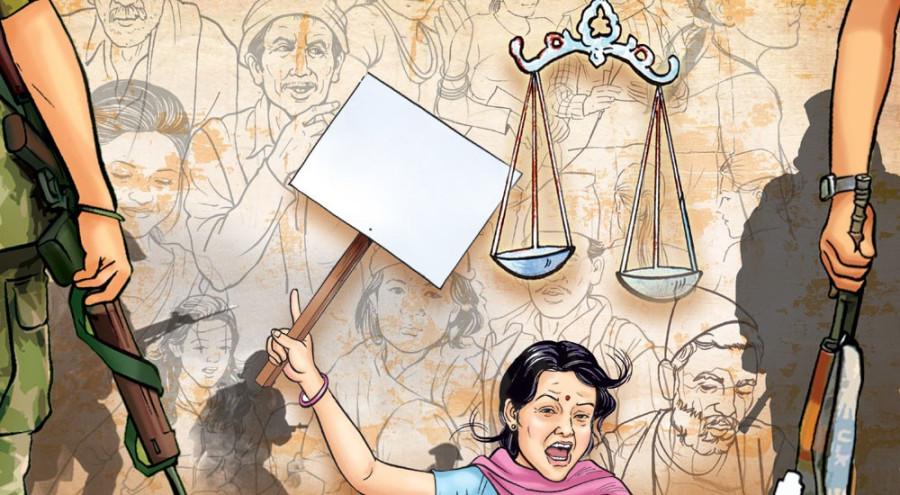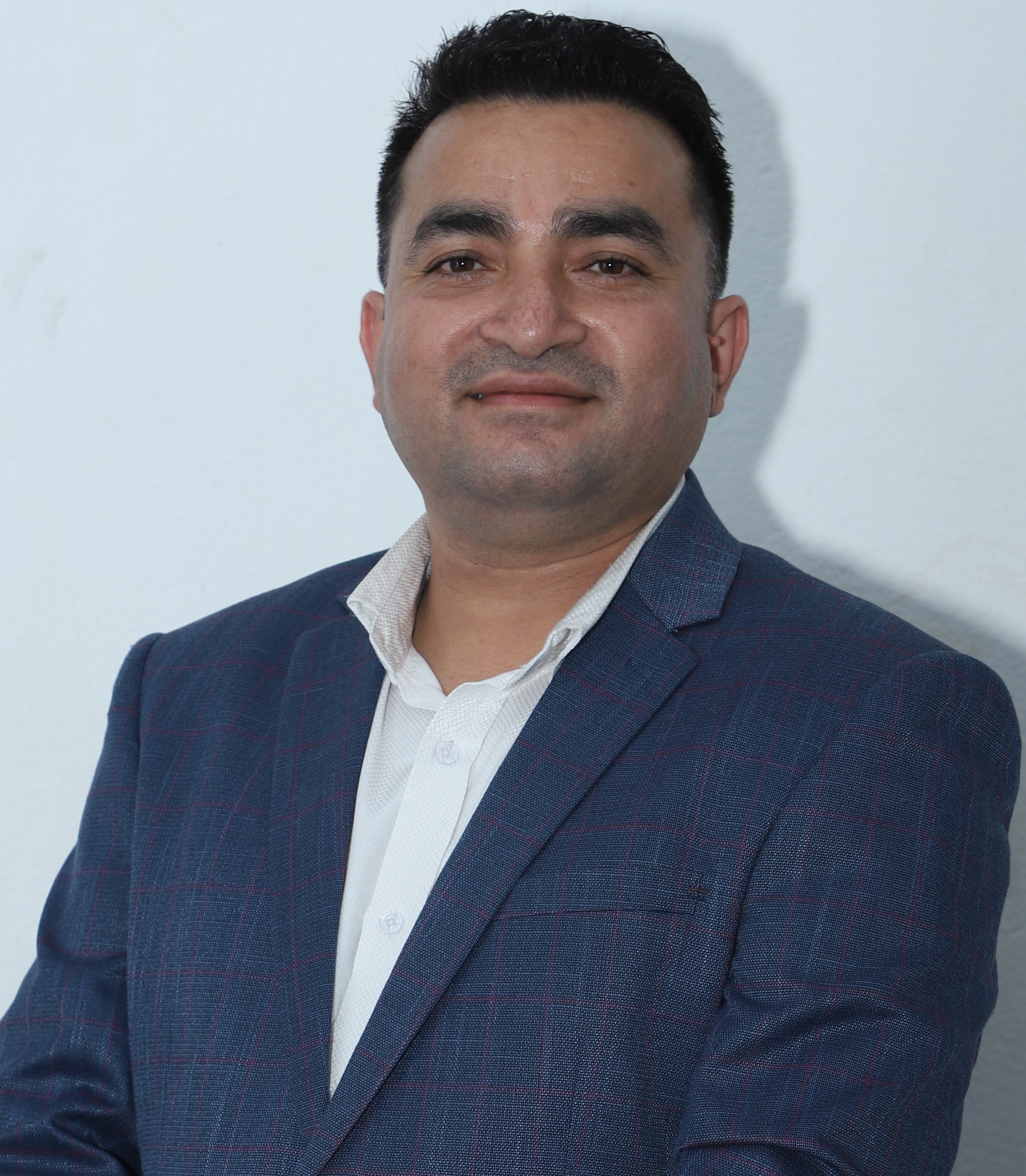Columns
Is our civil society failing?
Conflict victims feel abandoned by civil society, which has long been their voice.
Rajendra Senchurey
The victims of the decade-long armed insurgency have waited 18 years for justice. Recently, the government appointed 10 commissioners to two transitional justice bodies—the Truth and Reconciliation Commission (TRC) and the Commission of Investigation of Enforced Disappeared Persons (CIEDP). However, the recruitment process has left victims disgruntled. They have accused it of being unfair, perpetrator-centric, unconsulted and humiliating.
For the first time, victims of state violence and victims of insurgent violence have united against the government’s alleged suppression. Their hue and cry have resonated beyond national borders; some international human rights organisations have warned the government to pause and address the victims’ demands. Victims have gone door-to-door, appealing to political party leaders in their desperation. A quick look at their social media reveals their deep resentment and outcry.
Civil society has long advocated for the rights of victims. However, the victims currently feel abandoned by civil society. Their absence raises critical questions: Is our civil society dying? Where are the civil society leaders who have repeatedly spoken up for the rights, justice and dignity of the downtrodden?
Civil society would not need to speak out had there been a strong opposition in the Parliament. Unfortunately, the main opposition is also complicit. Only the victims, a few civil society leaders and opinion writers are on the frontlines, challenging the government’s wishy-washy and morally questionable actions.
Both the struggle for expanding civic space and media freedom is a subset of Nepal’s democratic movement. Over the last three decades, the country has experienced multiparty democracy, constitutional monarchy, armed conflict, as well as several kleptocracies and kakistocracies under the guise of democracy. While the media’s vitality has remained intact and even grown more vigorous, civil society has never been as weak as it has in recent years. Once, our only hope lay with civil society—whether during its relentless effort to abolish bonded labour (kamaiya) or in establishing various constitutional bodies.
Our nascent civil society began to wane with the onset of the decade-long armed insurgency (1996-2006), which was further intensified by the Royal Palace massacre of June 2001. While it gained public trust and support during the post-conflict phase, its credibility nearly collapsed during the undeclared blockade by India in 2015. The civil society failed to raise its voice strongly against India’s actions, which led to a humanitarian crisis in Nepal.
Additionally, it did not prevent the then-Chief Justice, Khil Raj Regmi, from running for the prime ministerial post, challenging the concept of power-sharing between the judiciary and the legislature. The ramifications of that incident were felt in other areas as well. For instance, while the Commission for Investigation of the Abuse of Authority (CIAA) investigated one money laundering case, the Parliament of the day initiated a similar investigation. Civil society failed miserably in that instance.
Our civil society also appears divided. As the ‘Third Force,’ which operates alongside the state and the market, it is meant to serve as an intermediary between the public and these entities. However, some political observers speculate that this apparent passivity may stem from a willingness to submit to authority due to political inclinations. If civil society aligns itself with any political fraternity, as has been hypothesised, it could result in a significant debacle for civil liberties in the long run.
Civil society must rise above partisan prejudices and advocate for people’s rights. Martin Luther King Jr once said, “Our lives begin to end the day we become silent about things that matter.” This should be the guiding principle for civil society everywhere, as it is a hallmark of democracy. However, this does not imply that civil society should view political parties as adversaries. While adhering to the constitution, civil society should support political parties in improving the well-being of the people.
In the case of conflict victims, we have rarely heard or read any vocal criticism regarding the state’s apathy in addressing victims’ grievances. Of the 10 office-bearers appointed to the two commissions, there is no representation from the Janajati (indigenous), Madheshi and Tharu communities. Why isn’t anyone talking about the lack of inclusion here? People waited to see at least some online solidarity from our civil society leaders towards the victims, but to no avail.
This government, allegedly with a semi-authoritarian outlook, seems inspired by the illiberal world order and has frequently attacked public interests. Everything becomes possible when leaders of the three largest political parties—the CPN (UML), Maoist Centre and Nepali Congress—reach a consensus. Sadly, people feel that civil society is not present in these incidents. Civil society leaders must advocate for rights and dignity rather than turning a blind eye or maintaining a diplomatic balance between right and wrong. It is time for self-reflection on whether they have acted as a watchdog.




 23.27°C Kathmandu
23.27°C Kathmandu

.jpg&w=200&height=120)













